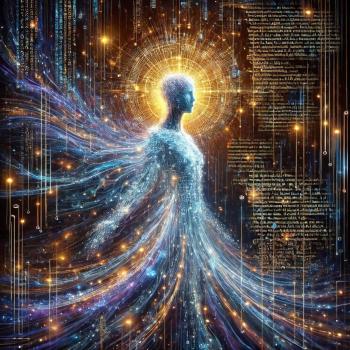 The Bible describes human beings as made in the image of God. Although young-earth creationists may claim to be defending that view of human beings, they in fact deny it.
The Bible describes human beings as made in the image of God. Although young-earth creationists may claim to be defending that view of human beings, they in fact deny it.
I say this because the statement about human beings being made in the image and likeness of God is a statement about human beings in general, and not only about the first two human beings. Genesis 9:6 makes this clearer than any other passage, when it emphasizes the seriousness of murder in terms of human beings having been made in the image of God. If the later descendants of Adam did not bear the divine image, the passage would cease to make sense.
But if, as young-earth creationists claim, it is necessary to deny evolution via natural processes in order to affirm the image and likeness of God, then what happens to human beings now? We are produced through a number of natural processes which are well understood, including sexual reproduction, genetic replication, cell division, and so on, processes which account for and explain the development of human beings from conception through to our existence as adults.
If being produced through natural processes is incompatible with being in the image and likeness of God, then that is bad news for us – but it is particularly bad news for young-earth creationists. Because if their reasoning about the incompatibility of divine creation and natural processes is correct, then despite their claim to be defending human dignity and the Bible, young-earth creationists are doing the very opposite. They are making an argument which has as its implication that today's human beings are not bearers of the image of God.
Most Christians reject such a stance. They recognize that the Biblical descriptions of humanity as “made in the image and likeness of God” refer to all the wonderful characteristics that set human beings apart from other living things on this planet. No matter what processes were involved in our being this way, that we are distinctive in those ways is a matter of observation, and has nothing to do with evolution or supposed Biblical literalism. The former does not detract from it, and the latter cannot add to it – although it can distract from it and deny it.
And so once again, we find that we must choose. Not between the Bible and science, nor between Christianity and evolution, as young-earth creationism claims. No, the choice is in fact between young-earth creationism and acceptance of a core Biblical tenet within the context of our scientifically-informed understanding of the world.












